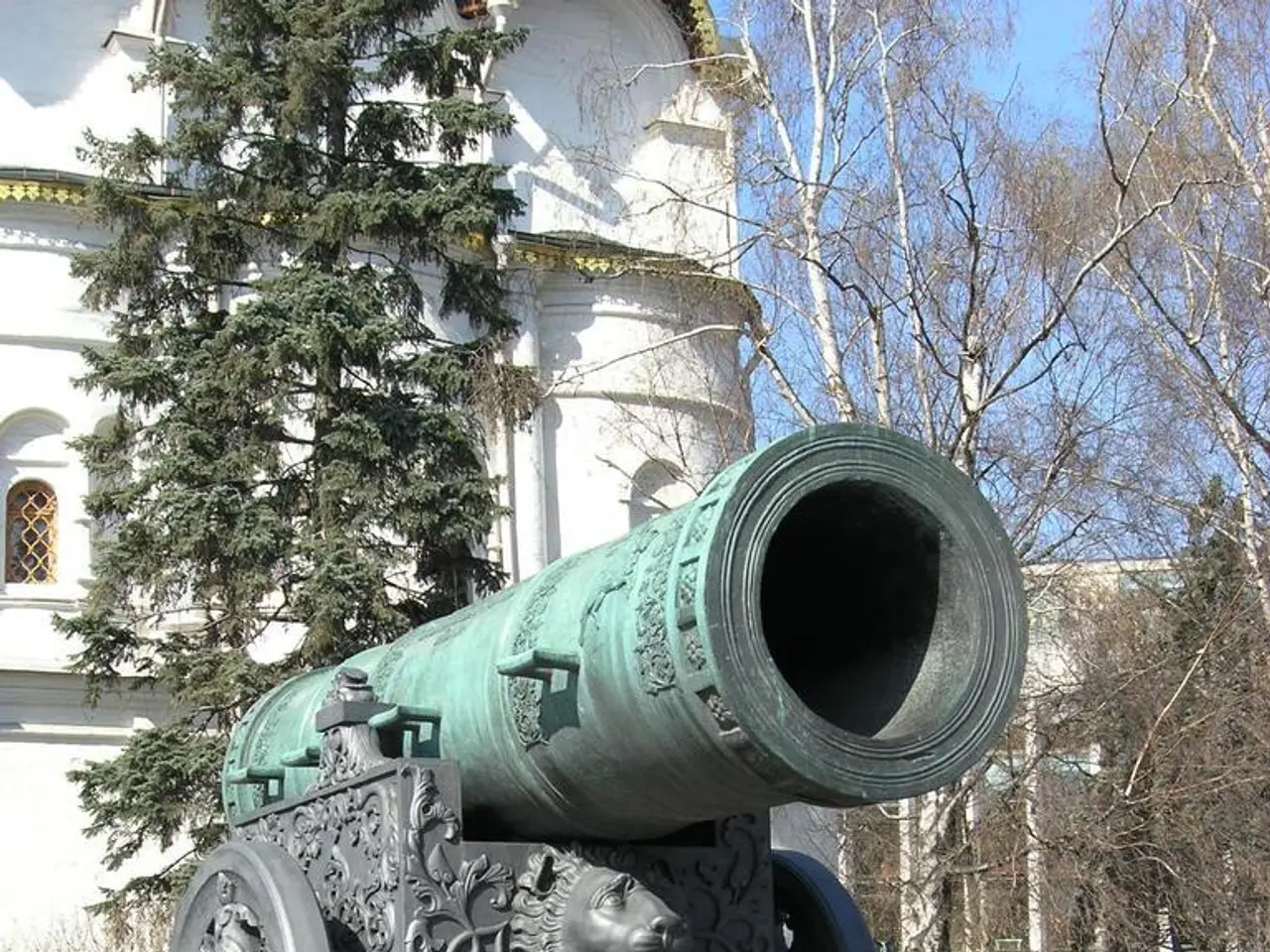Trump's Tariffs Are a Bigger Threat for Investors Than Middle East Conflict
Potential Consequences of a U.S. Military Engagement on Investment Markets
Got stocks? You might wanna tread carefully, but not necessarily because of the war drums in the Middle East.
Business "It's complicated" Trump laughs at war rumors
Capital market expert Stefan Riße suggests that investors shouldn't lose sleep over a potential US involvement in the skirmish between Israel and Iran. The US's air supremacy ensures that other countries in the region won't dare challenge the Americans, according to Riße. Thus, we're not looking at a regional inferno. "There won't be an oil price explosion either," Riße said.
However, there might be temporary disruption if oil tankers can't pass through the Strait of Hormuz. But China, being a significant importer of Iranian oil, would feel the sting the most. Beijing could simply divert oil imports from Russia instead. Economically, it's not a crisis, Riße notes.
"It's all been seen before," Riße says, "The Gulf War, the Iraq War, and Israel's wars - in the end, everything settles down." Nations in the region aren't militarily formidable. Pakistan, a nuclear power, is an exception, but Riße doesn't foresee any immediate threat from Islamabad as it isn't antagonizing the US at present.
Trump's Inflationary Gamble
What Riße finds truly concerning is the unresolved trade war between the US and its allies. The uncertainty surrounding this conflict is more worrying than the Iranian skirmish, according to Riße. "Indeed, escalating inflation rates are on the horizon for the next few months, and the oil price hike could simply add fuel to the fire," Riße warns.
Economics When Central Asia becomes the Oil Battlefield
In and of itself, this isn't a huge concern. But Trump's tariffs, coupled with his immigration policies, could drive up inflation. For instance, the shortage of farm workers for the harvest season due to deportations could lead to spoiled crops and increased prices. Overall, uncertainty is causing a significant reduction in investments.
"I wouldn't be selling my stocks due to the Iran war," Riße advises. "But these days, we're generally more cautious." Equities and indices are already overvalued. "Given their current valuations," Riße explains, "we're not expecting much growth for the foreseeable future."
Source: ntv.de
- Stock Prices
- USA
- Middle East Conflict
In short, while a US-Iran conflict might not be a silver bullet for the stock market, the trade war and the inflationary pressures it's creating could be much more detrimental to the market. Investors should be keeping a close eye on that unresolved tussle.
- The ongoing trade war between the US and its allies, as highlighted by economist Stefan Risse, poses a greater potential threat to investment policies than the Middle East conflict, due to the inflationary pressures it may create.
- Unlike the Middle East conflict, the trade war between the US and its allies could have significant impacts on employment policies, as a labor shortage caused by immigration policies might lead to discarded crops, Increased prices, and reduced investments.
- The uncertainty surrounding Trump's tariffs and immigration policies might cause a general reduction in investments, and investors should keep a close watch on the unresolved trade tussle rather than focusing solely on Middle East conflicts.








